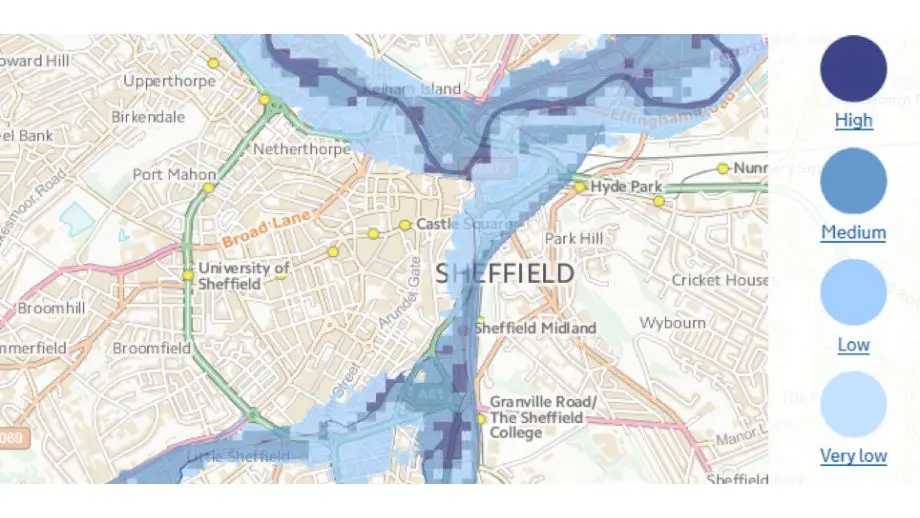Flood Resilience – is your business at risk and do you have a plan?
14 November 2019

Flooding accounts for 33% of all losses to business property. In fact, data from the Environment Agency reveals that businesses are more likely to flood than be damaged by fire (Environment Agency). Damages from a flood can be a disaster for any business; flooding not only damages property, stock and supplies, but may postpone business activities, disrupt supply chains and in extreme cases, expose businesses to civil or criminal liability. With severe flooding on the rise (Blöschl, Günter, et al. 2019), ensuring your property is flood resilient has never been more important.
Is your business at risk?
The Environment Agency (EA) operate a Floodline Service that you can call to check if your business lies within a flood risk area. You can also check using the online flood map tool (Figure 1),which uses the latest technology to visually demonstrate the spread of flood risk zones across England. Simply enter your postcode and the map will show whether your site sits within a flood risk zone. SEPA in Scotland , Natural Resources Wales and the Northern Ireland Department for Infrastructure provide similar mapping tools.
The EA also recommend keeping an eye on flood forecasts, which are accessible from the UK Government website. Alternatively you can sign up to the UK Gov flood warning service to receive warnings by phone or email.

Protect your business with an effective flood plan
To prevent high costs and disruption to your business, you should have an adequate flood plan in place. Businesses with a flood plan are also more likely to have reduced insurance premiums, a better corporate image and good reputation with their employees, customers and suppliers. A flood plan could form part of your broader business continuity plan and usually consists of a written document outlining how your business will respond to a flood.
As a minimum, a flood plan should include:
- a list of key contacts, including your insurance company, the flood incident hotline, building services, key suppliers and evacuation contacts for your employees;
- a description or map showing evacuation routes, locations of key property, protective materials and utility shut off points; and
- basic strategies for protecting property and preventing disruption, with responsibilities clearly defined.
You should also risk assess the likelihood of pollution occurring on your site as a result of a flood. If pollution occurs due to flood damage, for example an oil container becoming compromised and leaking oil into a water course, you could face prosecution in addition to having to cover the costs of any damages to your property.
Climate change and increased flood risk in the UK
Due to an increase in extreme weather events linked to anthropogenic climate change, flooding in the UK is expected to become more frequent and severe. According to a recent Europe-wide study, Northern England and Scotland have already experienced an 11% increase in flooding between the years 1960 – 2010 and concludes that greater consideration for flood risk management is required to avoid significant damages. The Environment Agency are currently preparing for 4 degrees increase in global temperatures and have estimated a total of £1 billion per year will be needed to ensure infrastructure is resilient to flooding (UK Gov).









